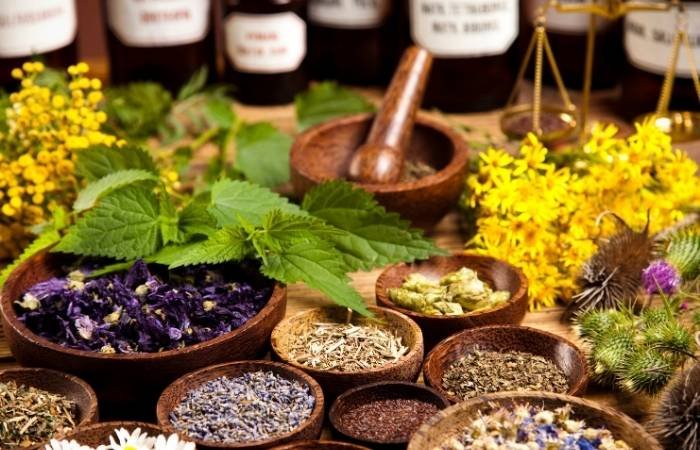The Power of Herbal Medicine: Natural Remedies for Common Ailments

In today’s fast-paced world, more people are turning to herbal medicine to address common health issues. From boosting immunity to easing digestive problems, herbal remedies have been used for centuries in various cultures to promote overall health and wellness. The rise in interest in natural treatments has sparked a renewed appreciation for the power of plants in healing.
Do you ever feel like reaching for something natural before resorting to over-the-counter medications? You’re not alone! Many people are discovering the countless benefits that herbal remedies offer in managing everyday health challenges.
Herbal medicine provides an alternative to conventional pharmaceuticals, offering natural options with fewer side effects. Whether you’re dealing with stress, insomnia, or digestive issues, nature has provided us with powerful solutions. In this article, we’ll explore the role of herbal medicine in treating common ailments, how it works, and some of the most popular herbs used for healing.
1. What Is Herbal Medicine?
Herbal medicine, also known as herbalism or botanical medicine, involves using plants and plant extracts to treat health conditions and promote overall well-being. These plants contain natural compounds that have therapeutic effects on the body, supporting healing and balance.
- How It Works: Many herbs contain active ingredients that can influence various systems in the body, such as the immune, digestive, or nervous systems. For example, certain herbs can help reduce inflammation, improve circulation, or balance hormones.
- Natural vs. Synthetic: Unlike pharmaceutical drugs, which often contain synthetic chemicals, herbal remedies are made from plant-based ingredients. These remedies tend to be gentler on the body and may offer fewer side effects.
- Forms of Herbal Medicine: Herbal medicine can be consumed in various forms, such as teas, tinctures, capsules, or topical applications. Some people even grow herbs at home for fresh use in cooking or as part of a wellness routine.
2. How Does Herbal Medicine Benefit Your Health?
Herbal remedies have been used for centuries, and modern research continues to highlight their health benefits. Here are some of the key advantages of using herbal medicine:
- Natural Healing: Many herbal treatments are believed to work with the body’s natural processes to help promote healing. Rather than masking symptoms, they support the body in restoring balance.
- Fewer Side Effects: Because herbal remedies are derived from natural sources, they typically have fewer side effects than synthetic drugs. However, it’s important to use them properly and consult a healthcare professional.
- Holistic Approach: Herbal medicine often takes a holistic approach to health, treating not just the symptoms, but the root causes of illness. This approach is based on the understanding that physical, emotional, and environmental factors can affect your health.
3. What Are Some Common Herbal Remedies and Their Uses?
From reducing anxiety to improving digestion, various herbs offer specific benefits. Here are some of the most popular herbal remedies and what they can help with:
- Echinacea for Immune Support:
Echinacea is widely known for its ability to boost the immune system. It’s often used to prevent or reduce the severity of colds and flu by stimulating the production of white blood cells.
Did you know that studies suggest taking Echinacea at the first sign of a cold can shorten its duration? - Ginger for Digestion:
Ginger is a well-known herb for its ability to soothe digestive discomfort. It helps reduce nausea, improve digestion, and alleviate bloating. It is commonly used for morning sickness, motion sickness, and indigestion.
Ginger contains compounds called gingerols, which can ease inflammation in the digestive tract. - Lavender for Stress and Anxiety:
Lavender is widely used in aromatherapy for its calming properties. Studies have shown that lavender can help reduce anxiety, promote relaxation, and even improve sleep. It can be used as an essential oil or in teas.
Did you know that lavender oil has been found to lower cortisol levels, the stress hormone, and promote a sense of calm? - Peppermint for Headaches and Digestive Issues:
Peppermint is often used to ease headaches, relieve indigestion, and alleviate muscle pain. It’s a soothing herb that can be consumed as a tea or applied topically for relief.
Peppermint oil, when applied to the temples, can reduce headache severity by increasing blood flow to the area. - Turmeric for Inflammation and Joint Health:
Turmeric is known for its powerful anti-inflammatory properties. The active compound curcumin in turmeric has been shown to reduce inflammation, making it beneficial for conditions like arthritis. It also promotes overall wellness by supporting digestive health.
Studies suggest that turmeric may even play a role in improving heart health by reducing cholesterol levels. - Chamomile for Sleep and Relaxation:
Chamomile is a popular herb known for its mild sedative effects. It is commonly used to improve sleep, calm the nervous system, and reduce anxiety. Drinking chamomile tea before bed can help promote relaxation and a restful night’s sleep.
Did you know that chamomile is often used as a mild natural remedy for insomnia and anxiety? - Ginseng for Energy and Vitality:
Ginseng is a powerful adaptogen that helps the body manage stress and improve energy levels. It can be used to combat fatigue, enhance cognitive function, and improve physical performance.
Ginseng is often used in traditional medicine to increase stamina and reduce fatigue, especially during times of stress.
4. How Do You Use Herbal Remedies Safely?
While herbal medicine is natural, it’s important to use it wisely and safely. Here are some tips to keep in mind:
- Consult a Healthcare Professional: Before starting any herbal remedy, especially if you have a pre-existing health condition or are taking medication, it’s important to consult a healthcare provider. Some herbs may interact with medications or cause allergic reactions.
- Start with Small Doses: If you’re trying a new herbal remedy, start with a small dose to see how your body reacts. This can help you avoid any adverse reactions.
- Quality Matters: Not all herbal products are created equal. Look for high-quality, reputable brands that provide transparency about their sourcing, production, and ingredient quality.
- Don’t Rely on Herbs Alone: Herbal medicine can be an effective part of a wellness routine, but it’s important to maintain a balanced diet, exercise regularly, and manage stress. Herbs work best when used as part of an overall healthy lifestyle.
5. The Future of Herbal Medicine
Herbal medicine is growing in popularity as people look for natural alternatives to conventional treatments. Modern research continues to explore the effectiveness of herbs, and many scientists are working to understand how they can be used in combination with conventional medicine. As the world becomes more health-conscious, herbal remedies are likely to play an even bigger role in mainstream wellness practices.
Conclusion: The Healing Power of Nature
Herbal medicine is more than just a trend—it’s a time-tested way to support your health and wellness naturally. Did you know that over 75% of the world’s population relies on herbal remedies for healthcare?
Whether you’re dealing with a cold, digestive issues, stress, or insomnia, herbal remedies offer a natural, effective way to address these common ailments. By incorporating herbs like ginger, lavender, and turmeric into your routine, you can harness the power of nature to promote better health. Always remember to use them responsibly and consult a professional when needed.
Herbal medicine is a safe, accessible way to enhance your well-being and tap into the healing power of nature. So, next time you’re looking for a remedy, consider turning to the plants around us—they’ve been healing us for centuries.




